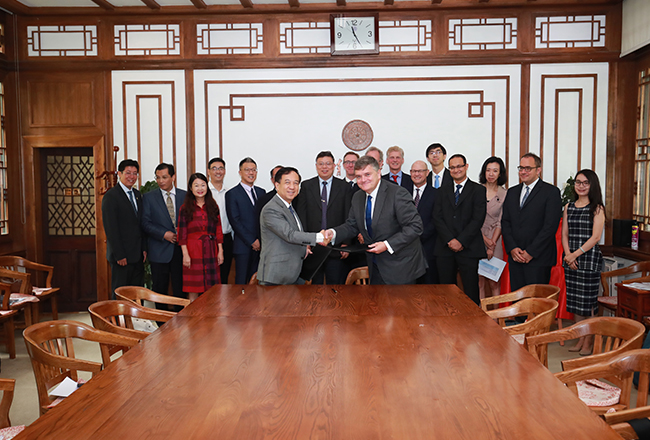
Boehringer Ingelheim has announced a formal collaboration with Tsinghua University in Beijing to research and develop immunological therapies for infectious diseases.
Scientists will work in the Boehringer Ingelheim-Tsinghua University Joint Research Center for Immuno-Infection to harness the mechanisms of immune modulation to combat infectious diseases.
The collaboration “is a further expression of our strong commitment to supporting research and development in China and acknowledges the leading position China has achieved in many scientific areas,” said David Preston, president and CEO of Boehringer Ingelheim Greater China.
Infectious diseases such as lower respiratory tract infections and tuberculosis are among the leading causes of mortality and morbidity worldwide. In China, chronic hepatitis B and tuberculosis are of high prevalence and associated with high mortality.
Similar to cancer, many pathogens may inhibit or modulate their host”™s immune system and thus circumvent immune defense. Immune-system-activating therapies, which have brought a major therapeutic breakthrough in cancer, may open similar transformative opportunities for infectious disease treatment.
The collaboration is an initiative of Boehringer”™s Research Beyond Borders (RBB) and Cancer Immunology and Immune Modulation Research Departments. Immuno-infection is a new focus area for its RBB department, which also focuses on gene therapy, regenerative medicine and the role of the microbiome in human health and disease.
Based in Ingelheim, Germany, Boehringer”™s North American headquarters are in Ridgefield.






















